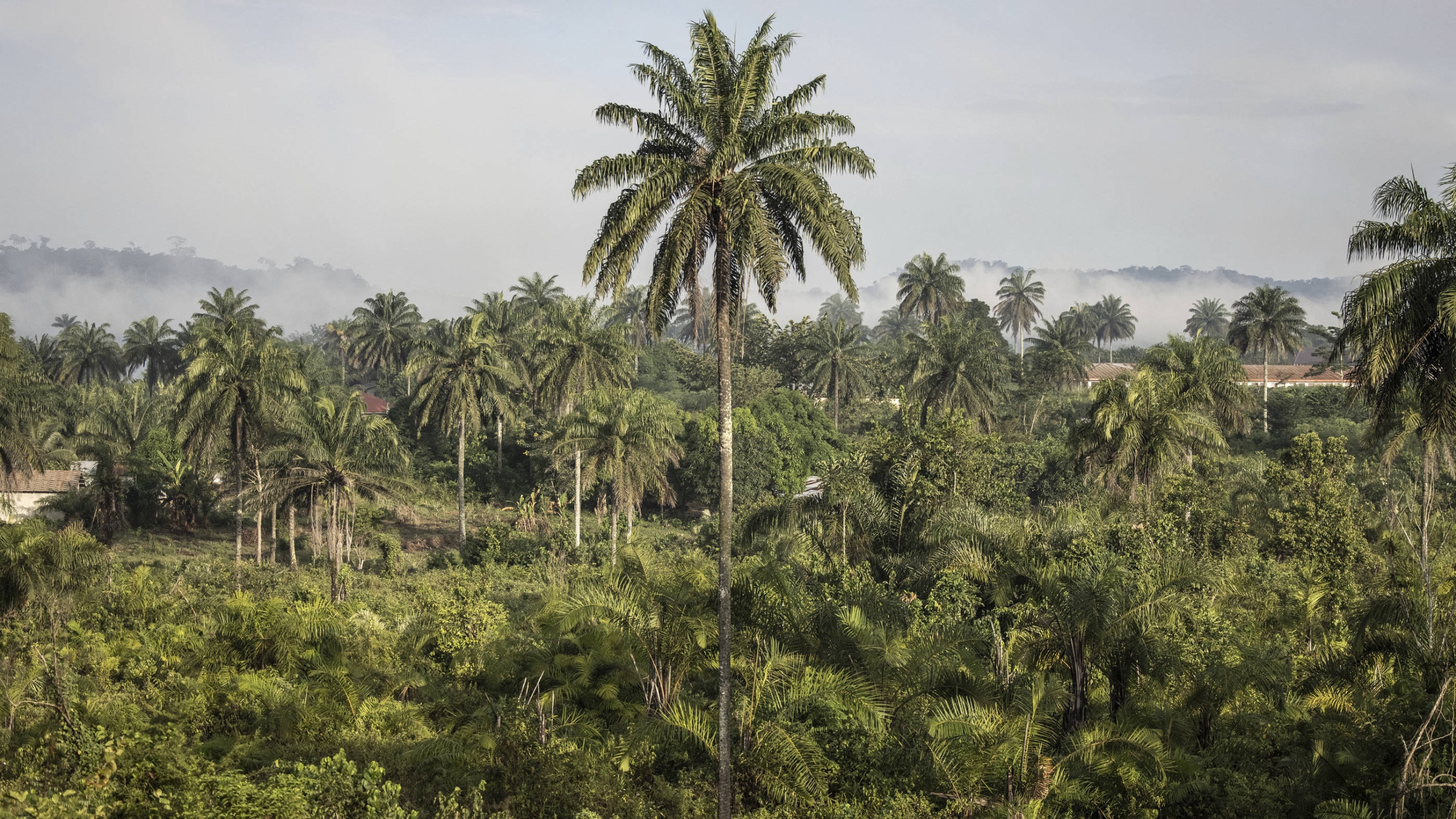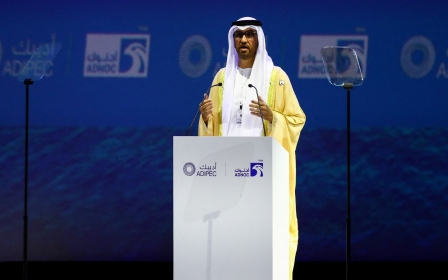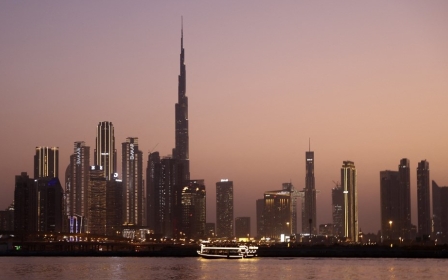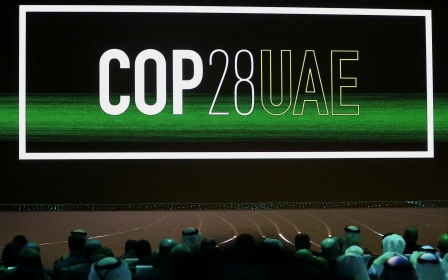Liberia to concede territory to UAE firm in carbon offset deal

A carbon offset deal could see Liberia concede 10 percent of its territory to a private Emirati company, extinguishing customary land rights and giving the United Arab Emirates (UAE) pollution rights equivalent to the forest’s carbon sequestration.
The deal would give the company blanket control over one million hectares of forest. The company would then “harvest” carbon credits, supposedly from restoring and protecting the land, which they would then sell onto major polluters to offset their emissions.
If signed, the Memorandum of Understanding (MoU) would violate a number of Liberian laws, including the 2019 land rights law, a legislation that asserts communities’ right to “customary land”.
It would also concede near total control of one of the most densely forested territories in Africa to the Dubai-based firm Blue Carbon for a period of 30 years.
Additionally, the deal would prevent Liberia from using the land to meet its own international climate targets.
New MEE newsletter: Jerusalem Dispatch
Sign up to get the latest insights and analysis on Israel-Palestine, alongside Turkey Unpacked and other MEE newsletters
Up until recently, the agreement was shrouded in secrecy; while the MoU was concluded in March, with the final draft to be signed imminently, local NGOs were reportedly unaware of the contract until government sources leaked the news.
“We only got to know about the draft agreement a few weeks ago,” Jonathan Yiah of the Sustainable Development Institute (SDI), a member of Liberia’s Independent Forest Monitoring Coordinating Mechanism (IFMCM), a consortium of seven environmental and community rights organisations, told Middle East Eye.
Following the leak, the government scrambled to invite local stakeholders to meetings. But the SDI reported that participants were only sent the draft contract a day before the first meeting, with subsequent meetings rescheduled at the last minute.
“The government was behaving as if there was no time,” Yiah told MEE.
For Paul Kanneh, another IFMCM campaigner, the upcoming Liberian elections in October suggest that government officials were in a hurry to pocket the initial upfront payment of $50m, an amount revealed in the leak.
“Generally speaking, I can deduce that the government wants money,” he told MEE.
The IFMCM immediately raised the alarm once the news was leaked, publishing a statement on their site.
“Claiming the legal rights to market the forest carbon has clear implications for property rights, as it affects the communities’ rights to determine how their land is used,” the group wrote.
'We need more consultation'
The draft contract overrides Liberian land laws that oblige developers to undertake free, prior and informed consent (FPIC) negotiations with communities on customary land.
While the terms of the contract obligate Blue Carbon to “apply best efforts” to conduct FPIC negotiations in the project areas, this would only happen within three months of the signing of the agreement.
“Why should it be done after signing the contract?” Loretta Althea Pope Kai, the executive director for the Foundation of Community Initiatives (FCI), told MEE.
“We’re talking about one million hectares, that would take more than six years.
'There’s no clarity as to what will be done to calculate what emission reductions have taken place'
- Jonathan Crook, policy expert
“They (the government) are saying that it’s a pilot project, but it’s a 30-year agreement, that is too long to just give it away without an FPIC process.”
Moreover, she added, more consultation is needed to understand the issue.
“This is the first carbon project in Liberia, we don’t have a legal framework to talk about carbon,” Kai said.
The draft contract also outlines an uneven distribution of profits from the sale of the carbon credits, with Blue Carbon reaping 70 percent of profits, the Liberian government 30 percent - of which around half will be paid to communities. However, the profits depend on how much the credits are valued at.
Furthermore, the contract specifies that two representatives of the company and a government official will sit on five-person committees to decide how the money should be spent, raising the possibility of communities being outvoted on decisions regarding funding allocation.
The contract also contains scant details about the carbon crediting methodology used to sell the credits.
“There’s no clarity as to what will be done to calculate what emission reductions have taken place,” Jonathan Crook, a policy expert with Carbon Market Watch, told MEE.
Blue Carbon says it adheres to the standards of REDD+, the international initiative to reduce emissions from deforestation.
However, REDD+ requires additionality, which dictates that a project generates additional benefits, such as carbon reductions, to the ones that would naturally occur without it.
And by buying land that includes existing nature reserves, Blue Carbon would not be providing any additional benefits.
“It’s very complex to assess additionality… for a carbon crediting methodology to determine additionality, it needs to demonstrate it's above and beyond what's already being done and what's required by law, and it needs to rely on the finance to occur,” Crook said.
“If the credits from this were not additional, then they would be worthless.”
MEE contacted Blue Carbon for comment but did not receive a response by time of publication.
Blue Carbon
Blue Carbon is helmed by Ahmed Dalmook Al Maktoum, a member of the Emirati royal family who also heads the Ameri Group conglomerate, which has heavily invested in oil and gas projects in the Mena region.
Founded just a year ago, Blue Carbon has no prior experience in carbon management, and according to its website, the firm’s portfolio includes a number of oil and gas infrastructure companies.
The agreement with Liberia comes off the back of a slew of similar MoUS signed by the firm with Papua New Guinea in November 2022, and Tanzania and Zambia within days of each other in February 2023.
“I think (this) represents a strategy by Gulf states who are interested in [being] able to make the claim that they are offsetting their carbon emissions,” Christian Henderson, a scholar in political economy and development in the Middle East, told MEE.
“These countries have no intention of stopping oil production, and they've made that very clear.”
The MoU with Liberia has reinforced environmentalists’ concerns that discussion around carbon markets will overshadow the phasing out of fossil fuels at the upcoming COP 28 climate summit, set to be hosted by the UAE in November, in a role that has drawn fierce criticism from environmentalists.
The harvested carbon credits could also be used to offset UAE’s own emissions, as the contract does not specify whether the credits can be sold in voluntary markets (which function outside of the compliance market), where they can be purchased by corporations, or via bilateral deals with governments.
Carbon cowboys
UAE is not the only actor vying for land in Africa.
“There is a wave of what has been called carbon cowboys, of these people with relatively little experience… getting involved in carbon offsetting, especially in Africa where land rights are very tenuous,” Alexandra Benjamin, forest governance campaigner for the NGO Fern, told MEE.
In 2009, a contract with UK-based Carbon Harvesting Corporation for 400,000 hectares of Liberian forests unravelled when it was found to violate a number of Liberian laws, with many high level government officials being charged with bribery and corruption.
'These countries have no intention of stopping oil production, and they've made that very clear'
- Christian Henderson, scholar
Land defenders and campaigners who fought years-long battles to challenge these contracts have faced intimidation and even threats to life.
Environmental lawyer Alfred Brownell, who helped halt clear-cutting of tropical forests by palm oil company, Golden Veruleum, was forced to flee Liberia in 2016 after escalating death threats and confrontations.
IFMCM campaigners have also reported receiving threats and being tailed by unmarked vehicles during their work on the Blue Carbon case.
“The government is trying to scare people,” IFMCM campaigner Abraham Billy told MEE. “You have to be careful about appearing in public.”
While carbon crediting is slated to be a topline issue at the upcoming climate summit, a recent study on Verra, the world’s largest carbon standard, found that 94 percent of the credits had no benefit for the climate.
“The idea that you can simply make an equation whereby if you buy up a certain area of land… then that will ensure offsets of your carbon emissions through the natural ability of this ecosystem to sequester carbon is really dubious,” Henderson said.
For Henderson, the carbon market is simply reproducing the hierarchies of the climate crisis - with poorer countries footing the bill for consumption by the wealthy.
“Poor countries should really be receiving funding from wealthy countries in terms of compensation to allow them to implement carbon climate adaptation, not mitigation,” he said.
This article is available in French on Middle East Eye French edition.
Middle East Eye delivers independent and unrivalled coverage and analysis of the Middle East, North Africa and beyond. To learn more about republishing this content and the associated fees, please fill out this form. More about MEE can be found here.





